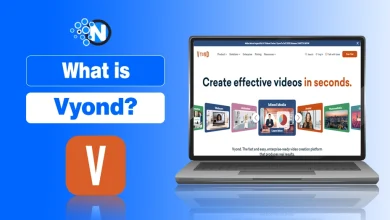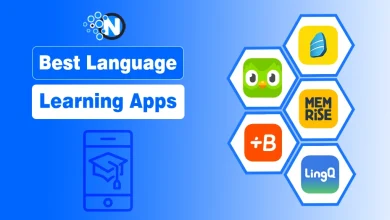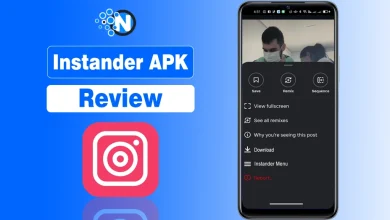What is Cash App? Features, How it Works, and How to Use it

Cash App, the money management platform that requires no introduction!
Whenever you want to send someone money instantly, without worrying about banks or waiting times, Cash App will be there. I still remember the first time I used it to split a dinner bill with a friend, and there I came to know about this app..
Within seconds, the money was transferred. It felt like magic, but it was just technology done right. If you have been wondering what is Cash App, how it works, and how to use it, then stick around.
I have explained it all in this guide for you in a way that’s easy to understand and practical for everyday life.
What is Cash App?
Cash App is a mobile payment service that allows you to send and receive money quickly using your smartphone.
Developed by Block, Inc. (formerly known as Square), it has become incredibly popular in the US and UK for personal and even some small business transactions, directly from smartphones.

What bank does Cash App use?
Cash App has outsourced all its financial activities to two FDIC-insured banks, which are Sutton Bank and Lincoln Savings Bank.
The things that make Cash App different are its simplicity and flexibility. You can pay friends, shop online, invest in stocks, buy Bitcoin, and even get a debit card, all within the same app. It’s like having a mini bank right in your pocket, and the best part is that it is free to use for most features.
Key Features of Cash App
Before getting into the functionality, let me walk you through some of the standout features that make Cash App more than just a peer-to-peer payment tool.

1. Send and Receive Money Instantly
It is the core of what Cash App does. You can send or request money from anyone using just their $Cashtag, phone number, or email address. Transfers are usually instant, which makes it perfect for splitting bills, paying rent, or even sending birthday gifts.
2. Get a Free Cash App Card
Cash App gives you a free customizable Visa debit card called the Cash Card. You can use it for online and in-store purchases. It connects directly to your Cash App balance and can even be linked to Apple Pay or Google Pay for extra convenience.
3. Direct Deposit and ACH Transfers
You can use Cash App to receive your salary or government benefits through direct deposit. The app provides you with an account and routing number so you can get paid just like you would with a traditional bank.
4. Buy, Sell, and Hold Bitcoin
Yes, Cash App lets you buy Bitcoin directly from your balance. It is a simple, beginner-friendly way to dip your toes into the crypto world without signing up for a separate exchange. Hence, you can have a hands-on experience of crypto with the help of the Cash App.
5. Invest in Stocks
Cash App Investing allows you to buy and sell stocks with as little as $1. There are no commission fees, and it is a great way for beginners to start learning about investing. So, just install the app, whether on iOS, Android, or Google Pixel smartphones, and start using this app.
6. Boost Rewards
This feature gives you instant cashback discounts at select merchants when you use your Cash Card. I have personally used Boosts to get discounts at coffee shops, grocery stores, and fast-food places. It’s like having built-in coupons.
7. Safety and Privacy
Lastly, Cash App uses encryption and fraud detection tech to keep your data safe. You can even block and unblock someone on Cash App to manage your interactions. Also, the developer company knows the cybersecurity risks, and that’s why they have integrated additional security features like Face ID, Touch ID, or a passcode to protect your money.
How Does Cash App Work?
Cash App works as a digital wallet connected to your debit card, bank account, or even just your app balance. It doesn’t require a bank account to function, but connecting one gives you more flexibility.
When someone sends you money, it appears in your Cash App balance. You can keep it there, spend it with your Cash App Card, withdraw it to your bank, or use it to invest. Everything is done in real time and with just a few taps.
How to Use Cash App?
- Download the Cash App from the App Store or Google Play.
- Enter your phone number or email.
- Verify your identity through the code sent to you.
- Add a debit card to Cash App to receive and withdraw money.
- Tap the Dollar sign on the home screen.
- Enter the amount.
- Tap Pay or Request.
- Enter the recipient’s $Cashtag, email, or phone number.
- Add a note if you want, then confirm.
How to Use the Cash App Card?
- Order your Cash App card for free.
- Activate it through the app.
- Start spending your Cash App balance anywhere Visa is accepted.
- Use Boosts to get discounts on purchases.
How to Deposit or Withdraw Funds from Cash App?
You can add cash to Cash App quite comfortably with the help of a linked debit card or bank account. Additionally, you can set up direct deposit for your paycheck. And when it comes to withdrawing money from the Cash App, you can do this with the help of the Cash App card.
You just need to visit the in-network ATMs if you have received a direct deposit of $300 or more to avoid any fee.
Is Cash App Safe to Use?
This is one of the first questions people ask, and I totally get it. When money is involved, safety matters.
Cash App uses advanced security features like data encryption and fraud protection. Your transactions are private, and you can enable extra protections like passcodes or biometric login. However, always remember that it is not a bank, and when it comes to deleting Cash App history, you cannot access this feature.
It offers banking features through partner banks, but it doesn’t come with the same regulatory protections as FDIC-insured institutions for all services. So, if you want a more secure platform, you can delete the Cash App account and move to other alternatives.
My advice? Use it smartly. Don’t send money to people you don’t know, and always double-check recipient details before hitting send.
Pros and Cons of Using Cash App
| Pros | Cons |
|---|---|
| Instant transfers | Limited international support (only US and UK) |
| No fees for standard banking features | Customer service can be slow |
| Easy to use interface | Not FDIC-insured unless using direct deposit |
| Includes investing and crypto features | |
| Free debit card with rewards |
How Cash App Compares to Other Payment Apps?
You might be wondering how Cash App stacks up against Venmo, PayPal, or Zelle. Here is how I see it:
1. Cash App vs Venmo
Venmo is more social and widely used for friend-to-friend payments. Cash App, on the other hand, offers more in terms of investing and Bitcoin. If you want a basic payment tool with fun emojis, go for Venmo. If you want a multifunctional financial app, Cash App is the better choice.

2. Cash App vs PayPal
PayPal is more business-oriented and works internationally. It supports invoices and has broader acceptance. But it is more complex. Cash App keeps it simple and is ideal for everyday personal use.

3. Cash App vs Zelle
Zelle is backed by traditional banks and is better for bank-to-bank transfers. It doesn’t hold a balance and doesn’t offer investment features. Cash App is more flexible and doesn’t require a bank account to work.

Who Should Use Cash App?
Cash App is a great tool for:
- Students who need to split bills or share rent
- Freelancers who want fast, no-hassle payments
- People looking to invest in small amounts
- Anyone tired of bank transfer delays
- Someone who wants to borrow some money
Yeah. That’s true. Cash App allows you to lend some money whenever you want after you unlock Borrow option on Cash App by maintaining a good transaction history.
Can You Use Cash App for Business?
Yes, and no. Cash App isn’t officially a business payment processor, but many freelancers and small vendors use it to accept payments. You can switch to a business account inside the app, but keep in mind that there may be fees associated with business transactions.
If you are running a proper business, you might be better off using Square or PayPal for detailed reporting and tax tools. But for side gigs and small services, Cash App can work just fine.
Final Thoughts
These are the details about Cash App. Cash App is more than just a money transfer tool. It is a smart, simple, and fast way to handle everyday financial tasks. Whether you are splitting bills, shopping online, or investing your first $10, Cash App keeps it easy and mobile.
I have used it for everything from buying coffee to buying crypto, and it continues to evolve. If you haven’t tried it yet, I would say give it a shot.
Just remember to use it wisely, stay alert, and enjoy the convenience it brings to your daily financial life.
People Also Ask
What Bank is Cash App?
Sutton Bank is the main Cash App bank that offers Cash App cards, while Lincoln Savings Bank offers direct deposits.
How to Get Free Money on Cash App?
Cash App doesn’t offer free money. However, if you maintain a good credit and transaction history, you can unlock the Borrow option on Cash App to lend some money for a specified time frame.
Who owns Cash App?
Cash App is currently owned by Block, Inc., which was previously famous as Square, Inc.
What is the Cash App Customer Service Number?
The Cash App customer service phone number is 1 (800) 969-1940.
What is the Cash App Borrow Limit?
The Cash App borrow limit ranges from $20 to $150, depending on your transaction history.




